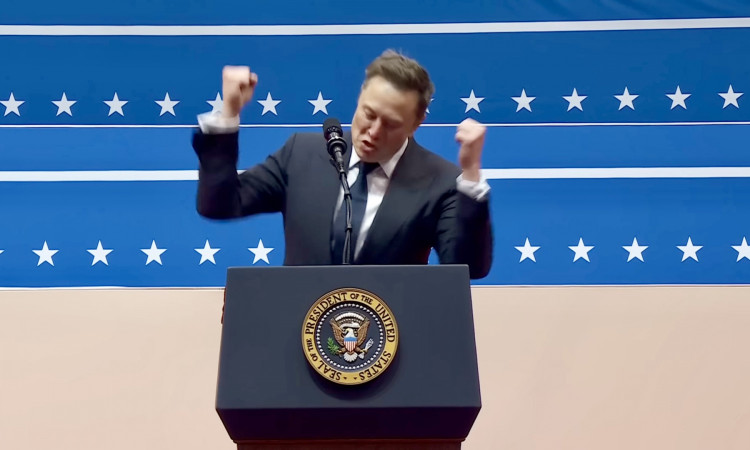Elon Musk said Tuesday he would consult with President Donald Trump on a proposal to issue tax refund checks using savings from the Department of Government Efficiency (DOGE), the administration's cost-cutting initiative. The idea, initially suggested by James Fishback, CEO of investment firm Azoria, proposes returning 20% of the program's projected savings to American taxpayers as a "DOGE Dividend."
"Will check with the President," Musk wrote in a post on X in response to Fishback's proposal, which outlined a hypothetical $5,000 refund per household if DOGE achieves its stated goal of cutting $2 trillion from the federal budget. The savings would come from reductions in agency funding, workforce layoffs, and fraud detection efforts, with the remainder being used to pay down the national debt.
DOGE, which Musk heads, has claimed to have saved $55 billion so far through various cost-cutting measures, though independent reports have cast doubt on that figure. Bloomberg reported Wednesday that only $16.6 billion in savings is accounted for on the DOGE website. The New York Times also highlighted discrepancies, including an $8 billion saving listed on a federal contract that was actually worth only $8 million.
Despite growing public discussion around the prospect of tax refunds, financial analysts and policymakers remain skeptical that the Trump administration will divert any of the savings toward direct payments to Americans. "Absolutely not-and it wouldn't be good for the economy," said Kevin Thompson, finance expert and CEO of 9i Capital. "If people thought inflation was bad last year and prices are still stubbornly high now, imagine what would happen if we pumped even more money into the system. It would be like giving a donut to someone managing diabetes-not exactly a good combination."
DOGE has primarily focused on shrinking the federal workforce and reducing agency budgets. According to Polymarket, the U.S. Agency for International Development has seen a $420 million funding reduction, and further cuts are expected for the Food and Drug Administration, National Institutes of Health, and Centers for Disease Control and Prevention. Trump has also mandated a return-to-office policy for federal employees and implemented a hiring freeze across government agencies.
Musk has emphasized DOGE's role in eliminating fraud, particularly in Social Security programs. In a recent post on X, he wrote: "According to the Social Security database, these are the numbers of people in each age bucket with the death field set to FALSE! Maybe Twilight is real and there are a lot of vampires collecting Social Security."
While the public discourse around stimulus payments has grown, financial experts caution that DOGE's cost-cutting measures do not necessarily translate into available funds for direct refunds. "DOGE finding waste is more like catching billing errors. It just means we're borrowing slightly less money, not that we suddenly have extra cash to spread around," said Michael Ryan, founder of MichaelRyanMoney.com. "That's kind of like us finding a coupon when we're already maxed out on our credit cards. Sure, it's great that we're spending less. But it's not like the grocery store is going to hand us cash back-we're still deep in the red."
The last time Americans received direct federal stimulus payments was in 2021, under pandemic relief measures. While some online discussions have fueled hopes of another round of checks, economic and political analysts say such a move is improbable. "While a future stimulus check isn't impossible and could be seen as a goodwill gesture to show taxpayers the supposed money saved, the unfortunate reality is odds of checks being sent out are fairly low," said Alex Beene, a financial literacy instructor at the University of Tennessee at Martin. "Even with the potential savings of recent cuts, stimulus checks are an incredibly expensive endeavor for a government already deeply in debt."
The Trump administration's focus, analysts say, is more likely to center on extending the Tax Cuts and Jobs Act (TCJA) rather than issuing new stimulus payments. Thompson said, "Any budget adjustments will likely come through extending the Tax Cuts and Jobs Act (TCJA), which would require $4.5 trillion to maintain those benefits. I expect policymakers to use any savings to pay for the extension of the TCJA by offsetting future liabilities."






